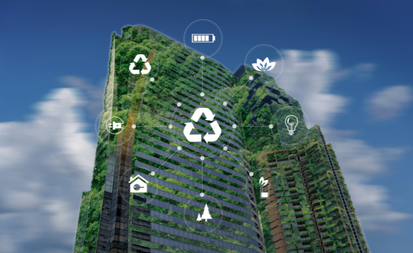Sustainable Tourism’ and its components in the 2030 agenda
Ishaan Bhutoria, Operations Director, 3102bce - a designer boutique resort in Goa Synopsis: Following the COVID-19 pandemic, sustainability has become highly significant. Climate change is inevitable, as is the necessity for the tourism industry to provide ecotourism


Ishaan Bhutoria,
Operations Director, 3102bce – a designer boutique resort in Goa
Synopsis: Following the COVID-19 pandemic, sustainability has become highly significant. Climate change is inevitable, as is the necessity for the tourism industry to provide ecotourism possibilities. Infrastructure and ecology are both crucial, but how will we manage both?
The tourism industry is growing progressively concerned with sustainability and providing environmentally friendly solutions. This World Tourism Day, let us emphasise the importance of sustainable tourism, which has set a milestone for global development. As governments have accepted the 2030 Agenda for Sustainable Development, as well as the Sustainable Development Goals (SDGs), it is now time for all hospitality brands to recognise the significance of attaining the agenda of sustainable tourism. It does, however, necessitate a well-defined implementation strategy, adequate funding, and investments in technology, infrastructure, and human resources. Travel and tourism, when managed sustainably, is one of the world’s largest employers. It benefits both the host countries and the communities that live in and around tourist spots. However, far too often, locals are denied access to the better benefits of sustainable tourism. Public awareness has drawn attention to the considerable harm that air travel, unregulated tourism, and the creation of tourist infrastructure, particularly in environmentally sensitive areas, could cause to the ecological balance.
On Sustainable tourism development and its impact at the grassroots level can be linked to national poverty reduction goals, such as fostering entrepreneurship and smaller firms and empowering underserved populations, notably youth and women. Sustainable enterprises with agile frameworks that emphasise the well-being of people and the environment, as well as financial success, have better chances of emerging amongst some of the persistent, prominent, and leading actors of this growing market. Tourism can additionally boost agricultural productivity by encouraging the production, consumption, and sale of local products in tourist areas, as well as their complete integration into the tourism value chain. Agro-tourism, a burgeoning tourism sector, can also supplement traditional agricultural activities.
A well-trained and skilled workforce is essential for tourism to thrive. Through cross-border agreements on qualifications, standards, and certifications, the sector can offer incentives to invest in education and vocational training while also assisting labour mobility. Furthermore, tourism promotes women empowerment in a variety of ways, primarily by providing work possibilities and income-generating opportunities in small and large-scale tourist and hospitality-related businesses.
Speaking about the future of developing sustainable tourism and the implementation of its components in the business, Mr Ishaan Bhutoria, Operations Director, 3102bce – a designer boutique resort in Goa, stated, “As an ethical hospitality group, we operate in accordance with strict environmental, social, and governance standards that support our efforts to achieve the UN Sustainable Development Goals. When the construction of our resort commenced, there were about 20-25 full-grown palm trees and a well. The construction workers were instructed not to cut down the trees but instead to pick them up and replant them on a nearby property for landscaping purposes. We also did not demolish the well.”
“Additionally, we have implemented procedures to conserve energy, including the use of energy-efficient lighting and green architectural features to optimise our eco-conscious operations. The sun provides a key source of light in our open courtyard. In the morning, the space does not require any artificial lighting as it is well-lit by natural sunshine. Furthermore, the eco-friendly canvas blinds used in our resort reduce direct heat while keeping the surroundings cool and breezy. Our resort is lush with trees and flowers, which also contributes to keeping the surroundings windy. We have also implemented measures to combat climate change, such as wastewater management, pollution control, saying no to harmful pesticides, and a shift toward economic and sustainable energy,” he further explains.
 English
English French
French German
German Italian
Italian




